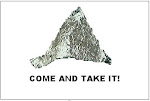I'm not an expert in the stock market, or in economics or anything like that, but this graph brings up a few questions.

The main question is regarding the large increase in value starting about 1982. The early part of this graph shows an almost flat line. It looks as if you were to have put money into the market in 1971 and pulled it out in 1981 you would have gained very little, in fact the DOW was priced at $810.67 in November of 1971 and ten years later it was $852.45, and increase of just 4.9% in 10 years. Compare that to the next 10 years and we see an increase of 257% (1991 the DOW was at $3045.62) and then another ten years we get an increase of another 206% (Nov 2001 DOW was at $9323.54). So from 1971 to 1991 there was over a 1000% increase in the value of the DOW. Where did all the money come from? How did people make money on the stock market prior to 1982?
Here's my theory. First the early part of the graph is misleading because in the past people invested in a company in order to receive a dividend. The price of the stock was not the most important aspect of the company you were investing in. You would buy stock in a company, if the company made a profit it would pay that profit out to its shareholders in the form of a dividend. Actual cash money. Then I suppose people would take that dividend and put it in their accounts at their local banks and those banks would in turn use that money to lend out and promote business in their communities. However, in recent history we have moved to a model that speculates on massive stock trading and attempts to gain value by being less interested in the companies profitability and more interested in how many of the companies shares were trading and at what price . Dividends are less common today than they were in the past as most people are more concerned with the price of a given share, than on the dividend the share pays. In other words the market became much more speculative.
I suppose part of this came upon with the onset of computers and the ability to rapidly place buys and sells onto the market and the ability to update the price of a stock in real or near real time. Whatever the reason, the difference is profound. The graph above clearly shows a shift in the way we relate to the market where share price became the more predominate factor. But the question still remains: Where did all the new money come from?
Initially anyway, the new money came directly from people's savings accounts and from the profits of businesses. It happened like this: "In 1978, Congress amended the Internal Revenue Code, later called section 401(k), whereby employees are not taxed on income they choose to receive as deferred compensation rather than direct compensation." The law went into effect in 1980, and according to the above linked reference, by 1984 over 17,000 companies were offering 401k's. So basically congress set up a system to discourage people from holding their savings in the form of cash or other investments and to encourage them to put those investments into the stock market. Now instead of saving their earnings locally people were placing their savings in 401K's which were heavily invested in stocks traded on Wall Street. This was provided further incentive because employers would match the contributions of the employees, providing even more money for Wall Street.
In my opinion it's basically why we only have Wall Street shops like McDonald's, Starbucks, and Wal-Mart in our neighborhoods, and the shops that used to be owned by our neighbors have closed down. Access to capital is vital for a business to thrive and lending regulations make it much more difficult for a small business to negotiate terms with a banker that can help him to achieve success. The small businessman can all but forget raising capital investment in his own town, not only has most of the incentive for his neighbors to financially participate in his business been removed by tax law favoring investment in Wall-Street stocks, but he would also probably be thrown in jail for some kind of securities fraud for even trying.
It's funny how much difference a law can make. With the 401k law the government basically took away our Main Streets and replaced them with the all to familiar corporate counterfeits we have become so used to.
Maybe this financial meltdown will help us get back to an older and more honest way of doing business. But we would have to do this by working together as small, self sustaining communities of people who can and are willing to defend themselves.

1 comments:
Post a Comment